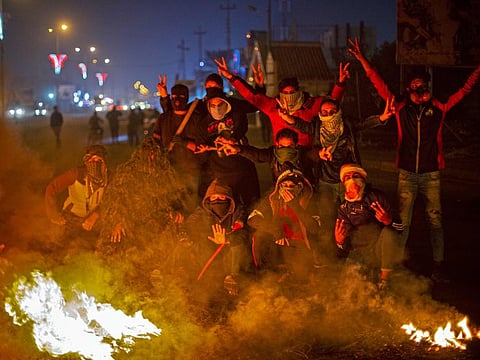Cosmetic reforms in Iraq and Lebanon will not work
Real change would mean that Iran would no longer be able to dictate their agenda

Since October, Iraqis and Lebanese have been protesting against their “corrupt” leaders calling for a complete overhaul of the political system. Protesters in both countries have called for a series of urgent reforms. But the authorities are resisting the implementation of genuine reforms, opting to maintain the status quo by making some cosmetic changes.
On Tuesday, the Iraqi parliament finally passed a new election law. The protesters had made this a prerequisite to any new election, saying that the old law made it difficult for independents to win because of the heavy influence of political parties.
The new law does away with voting lists grouped by parties and replaces it with voting for individuals. But, already, Iraqi protesters are up in arms saying that the new law merely aims to fool the people. In reality, once the representatives get to parliament, they will have to form political parties to choose a prime minister.
While the developments are not promising and are not likely to steer Iraq and Lebanon out of political and economic turmoil, it is clear that their citizens are not falling for government diversion tactics.Gulf News
Iran’s political and financial backing of political parties brings the problem back to square one. Iraqis complain of Iranian influence over their politicians, which has put Tehran’s agenda ahead of their own national interests.
In Lebanon, the situation is no different. Last week, Hezbollah-backed prime minister candidate, Hassan Diab, was appointed. While he was marketed as a “professional technocrat” many critics point to his support from the Iranian-backed Hezbollah. They say he cannot be trusted with carrying out an agenda that genuinely supports the protesters’ demands. He also held political office before, during the Hezbollah-backed government of Najib Mikati in 2011-2014, serving as education minister.
While the developments are not promising and are not likely to steer Iraq and Lebanon out of political and economic turmoil, it is clear that their citizens are not falling for government diversion tactics. The people are aware of the issues and are no longer blinded by sectarian agendas of the past. The unified agenda of protesters gives them an incredible power — one that the embattled governments are failing to overcome.
In Iraq, authorities have responded with force, with more than 450 protesters killed and thousands upon thousands injured. This demonstrates the government’s true resistance to change. Real change would mean that Iran would no longer be able to dictate its agenda.
Authorities are betting on protester fatigue but as we have seen in Algeria, which has been wracked by protests since February, anti-government protesters are disciplined and persevering and will not stop until all of their demands are met.



